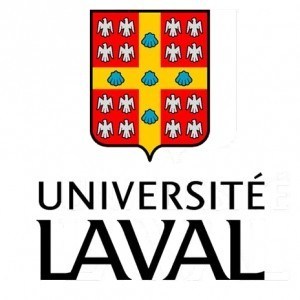Photos of university / #ulaval
The Mechanical Engineering program at Laval University is a comprehensive multidisciplinary program designed to equip students with a solid foundation in the principles and practices of mechanical systems and technologies. This program emphasizes the development of critical thinking, problem-solving skills, and technical expertise necessary for innovative design, analysis, and manufacturing in diverse industries. Students will engage in a rigorous curriculum that covers fundamental topics such as thermodynamics, mechanics, materials science, fluid mechanics, control systems, and computer-aided design (CAD). The program integrates theoretical knowledge with practical applications through laboratory work, project-based learning, and internships, enabling students to gain real-world experience. Advanced coursework offers specialization options in areas like manufacturing, automotive, robotics, energy systems, and mechatronics, providing pathways to niche industries and research opportunities. Laval University’s state-of-the-art laboratories and dedicated faculty members support an immersive learning environment, fostering creativity and teamwork. Additionally, the program emphasizes sustainable engineering practices and promotes innovation to address global challenges such as renewable energy, efficient transportation, and environmentally friendly manufacturing. Graduates of the Mechanical Engineering program at Laval University are well-prepared to pursue careers in manufacturing, aerospace, automotive, consulting, or research and development sectors, or to continue their studies through graduate programs. The program’s robust curriculum, combined with its focus on hands-on experiences and industry partnerships, ensures that students are ready to meet the demands of the evolving engineering landscape. Overall, Laval University’s Mechanical Engineering program strives to develop competent, responsible, and forward-thinking engineers who can contribute effectively to technological advancements and societal progress.
The Bachelor of Engineering in Mechanical Engineering at Laval University provides students with a comprehensive education in the core principles of mechanical systems, design, analysis, and manufacturing. This program aims to equip students with both theoretical knowledge and practical skills necessary for careers in various sectors such as automotive, aerospace, energy, robotics, and manufacturing industries. Throughout the program, students explore fundamental topics including thermodynamics, fluid mechanics, materials science, mechanical design, control systems, and computer-aided design (CAD). Emphasizing hands-on learning, the curriculum incorporates laboratory work, project-based assignments, and collaborative design projects that foster innovation and teamwork. Students are also encouraged to develop problem-solving skills and gain expertise in using advanced engineering software tools.
In addition to technical courses, the program integrates courses on engineering ethics, sustainable development, and professional practice to prepare students for responsible and ethical engineering roles. The program includes opportunities for internships and co-op placements, allowing students to gain real-world experience and establish professional networks. The educational approach promotes critical thinking, creativity, and lifelong learning, essential for adapting to rapid technological advancements in the field of mechanical engineering. Upon graduation, students are well-prepared to pursue careers in research and development, manufacturing, energy systems, or to continue their education through graduate studies. Laval University’s mechanical engineering program aims to produce skilled engineers capable of contributing to technological innovation and economic development in Quebec, Canada, and globally.
The Bachelor's degree in Mechanical Engineering at Laval University requires students to complete a comprehensive curriculum designed to provide a solid foundation in the principles of mechanics, thermodynamics, materials science, and design. The program typically spans four years, totaling approximately 120 to 130 credits. Students must pass a series of core courses in mathematics, physics, chemistry, and computer science during the initial years to prepare for advanced engineering topics. Key courses include Statics, Dynamics, Mechanics of Materials, Thermodynamics, Fluid Mechanics, Machine Design, and Manufacturing Processes. In addition to technical coursework, the program emphasizes the development of problem-solving skills, analytical thinking, and practical application through laboratories, projects, and internships. Students are required to participate in hands-on activities and design projects to enhance their understanding of real-world engineering challenges. The curriculum also incorporates courses on sustainable design and innovation, reflecting the university’s commitment to environmentally responsible engineering practices. To promote interdisciplinary collaboration, students may have options to enroll in related courses in industrial engineering, electrical engineering, or business management. A compulsory engineering internship or cooperative education component provides students with practical work experience in industry settings, facilitating the transition from academic to professional environments. The program culminates in a capstone project where students design and analyze a mechanical system or product, demonstrating their comprehensive learning and engineering skills. Graduates are eligible for professional licensure as engineers upon meeting the regulatory body’s requirements. Overall, the Laval University Mechanical Engineering program aims to produce competent, innovative, and ethically responsible engineers equipped to meet the demands of modern industry and contribute to technological advancement.
The financing of the Mechanical Engineering program at Laval University is primarily supported through a combination of governmental funding, university resources, student tuition fees, scholarships, and financial aid programs. The Quebec government allocates funds to institutions based on various criteria, including program demand, research activity, and institutional priorities, ensuring that students have access to quality education without the burden of excessive costs. Tuition fees for domestic students are regulated and remain relatively affordable compared to other regions, with slight variations depending on the year of study and specific program components. International students are subject to higher tuition fees, which contribute significantly to the financial stability of the program and university infrastructure.
Laval University offers a variety of scholarships and financial aid options aimed at assisting both domestic and international students. These include merit-based scholarships awarded based on academic excellence, need-based grants for financially disadvantaged students, and specific awards for students pursuing engineering degrees. Many students also benefit from government loans and work-study programs, which facilitate part-time employment opportunities on campus aligned with students’ schedules, thus easing financial burdens while gaining practical experience.
Research funding plays a vital role in supporting the Mechanical Engineering program’s development and innovation activities. The university actively pursues research grants from national agencies such as the Natural Sciences and Engineering Research Council of Canada (NSERC) and provincial funding bodies, which not only advance scientific knowledge but also enhance the educational experience for students through participation in cutting-edge projects. Partnerships with industry also provide financial support and internships, contributing to practical training and potential employment opportunities after graduation.
Furthermore, Laval University maintains collaboration with local businesses and organizations that may provide sponsorships or bursaries to students enrolled in advanced or specialized tracks within the Mechanical Engineering program. These collaborations often include internship placements and research projects funded by industry partners, offering students valuable experience and financial support.
Overall, the financing model of the Mechanical Engineering program at Laval University is designed to ensure accessibility, promote research excellence, and prepare students for successful careers in the field of mechanics and engineering.
The Mechanical Engineering program at Laval University is a comprehensive and rigorous undergraduate program designed to prepare students for diverse careers in the field of mechanical engineering. The curriculum emphasizes fundamental engineering principles, including mechanics, thermodynamics, materials science, manufacturing processes, and control systems, providing students with a solid foundation in both theoretical knowledge and practical skills. Throughout the program, students engage in hands-on laboratory work, design projects, and internships that foster problem-solving abilities, innovation, and teamwork. The program also encourages the development of specialized expertise in areas such as robotics, automation, energy systems, and sustainable design, aligning with evolving technological advancements and industry needs. Laval University's faculty consists of renowned researchers and experienced professionals committed to providing high-quality education and mentorship. The university's facilities include modern laboratories and workshops equipped with advanced tools and technology to enhance experiential learning. Graduates of the Mechanical Engineering program are well-equipped to pursue careers in manufacturing, aerospace, automotive industries, energy sectors, consulting firms, and research institutions. They also have opportunities to continue their studies at the graduate level, engaging in master's and doctoral programs that focus on innovative research. The program has a strong reputation for its academic excellence, industry collaboration, and commitment to fostering competent professionals capable of contributing to local and global engineering challenges. Overall, Laval University's Mechanical Engineering program offers a balanced education combining theoretical foundations, practical experience, and research opportunities to prepare students for successful careers and lifelong learning in mechanical engineering.



